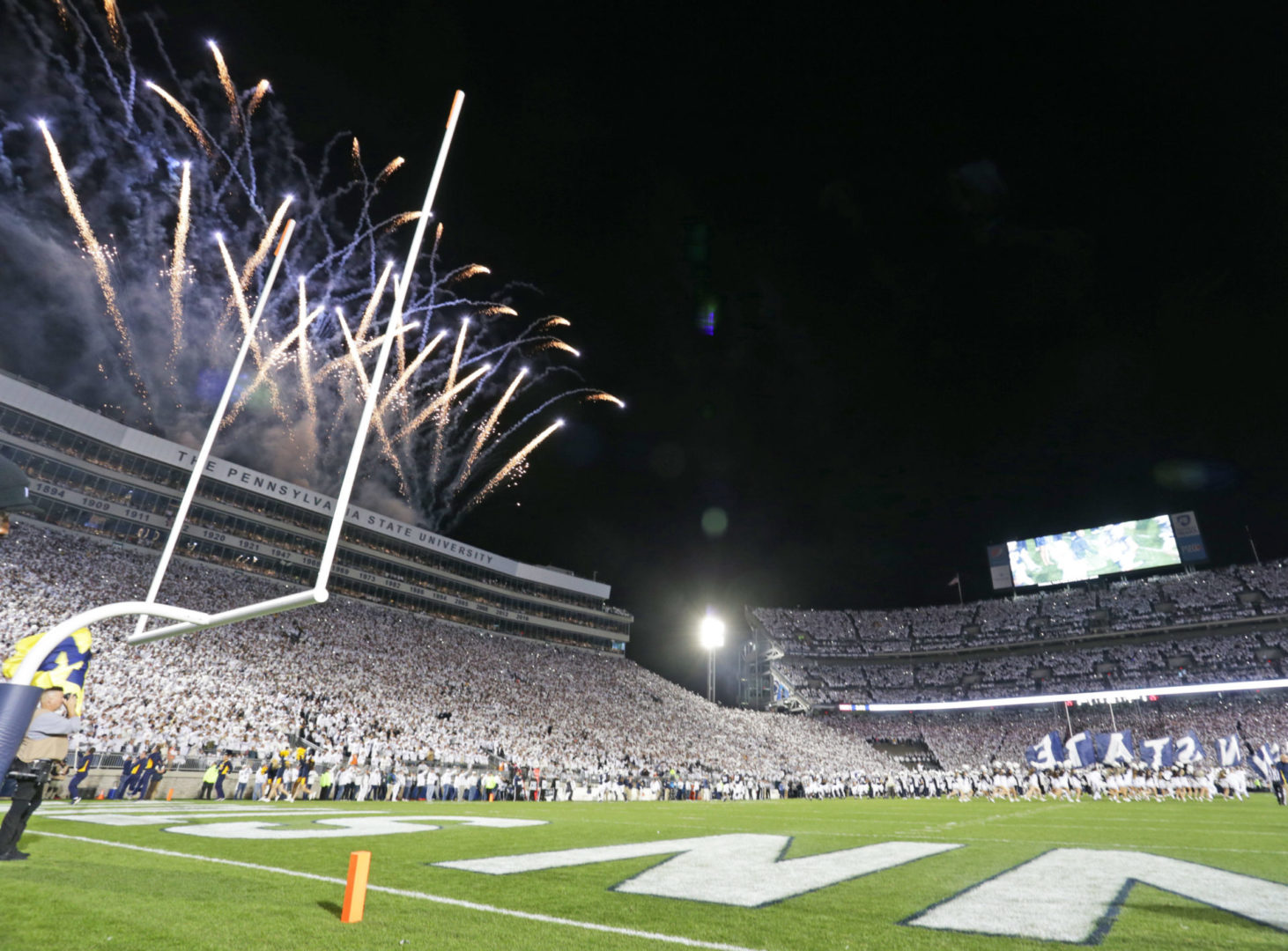
Beaver Stadium pregame crowd. Photo by Paul Burdick

Beaver Stadium pregame crowd. Photo by Paul Burdick
The Penn State Board of Trustees Committee on Finance, Business and Capital Planning on Thursday recommended approval of a proposed $70 million budget for the first stage of Beaver Stadium renovations, which are slated for completion by August of 2027. The project will be voted on by the full board on Friday (May 5).
The primary focus of the initial project will focus on the complete renovation of the west side of the stadium in areas such as amenity upgrades, improved access for broadcasting, greatly improved circulation, new restrooms, upgraded concession offerings, winterization efforts and premium seating. The entire stadium renovation project is estimated to cost $700 million and will be financed and paid for entirely by Penn State Intercollegiate Athletics. No tuition dollars or educational budget funds will be used toward the renovations.
“After years of studies and careful analysis, I’m happy that these much-needed renovations to Beaver Stadium are about to get underway,” Penn State President Neeli Bendapudi said. “I am committed to continuing to grow our Intercollegiate Athletics program and to keeping Penn State competitive on the national stage. We have one of only a handful of self-sustaining intercollegiate athletics departments in the country, which means that this project can move forward, distinctly, without using the University’s overall budget, tuition dollars, student fees or the critical resources available in support of our educational and research missions.”
Bendapudi originally announced the university’s intention to renovate Beaver Stadium at the February Board of Trustees meeting.
“On behalf of the Board of Trustees, I’m thrilled to support the University and Intercollegiate Athletics in this renovation project, which will benefit all of our student-athletes and ultimately grow the role Beaver Stadium plays in supporting the local and state economies — all in a fiscally responsible manner that is completely separate from the University’s academic budget,” said Board Chair Matt Schuyler. “Beaver Stadium is a national icon, and parts of the facility are more than 85 years old. This is the right time and the right approach for needed improvements and modernization.”
According to the documents, the design process is slated to begin in June of 2023 with pre-construction scheduled to begin in June of 2024. The first stage of actual construction will include a focus on priority safety and security, including crowd traffic control, and addressing field lighting performance. Winterization work also will be completed, which entails the insulation of pipes and other upgrades to allow the building to be occupied when temperatures are below freezing, giving Penn State the ability to host a College Football Playoff game beginning in 2024 and other potential events beyond Penn State football games in the winter months.
“There are several funding avenues for this transformational project. The additional revenue generated throughout the renovated stadium will not only offset the costs but also enhance our overall athletics budget in the future,” Vice President of Intercollegiate Athletics Patrick Kraft said. “In addition to stadium-generated revenue, we will embark on a major philanthropic campaign with a goal of raising more than $200 million to support the stadium renovation and other athletic department priorities. Further, we expect to see significant revenue in sponsorships and third-party contracts, all of which enables Penn State Athletics to remain self-sustaining.”
Prior to August of 2027, the plan for the full project involves a complete reconstruction of the west side of the stadium, which will maintain traditional bowl-style seating while adding anticipated club and loge seats and executive and founder’s suites. Additional anticipated renovations throughout the facility include ongoing code upgrades, accessibility improvements and upgraded fan amenities. According to Penn State these upgrades also involve improved circulation to ease spectator congestion throughout the stadium, improved restrooms, upgraded concessions, Wi-Fi and cellular upgrades, and additional seating options.
“We have the most passionate fans in college football and we are designing the renovation to provide them with an even better experience than the nation-leading game day environment we have now,” said Kraft. “Even with the substantial enhancements and new amenities, we will remain true to the traditions of Penn State football and Beaver Stadium.”
Construction is expected to begin in January 2025 after the conclusion of the 2024 football season.
Receive all the latest news and events right to your inbox.

80% of consumers turn to directories with reviews to find a local business.